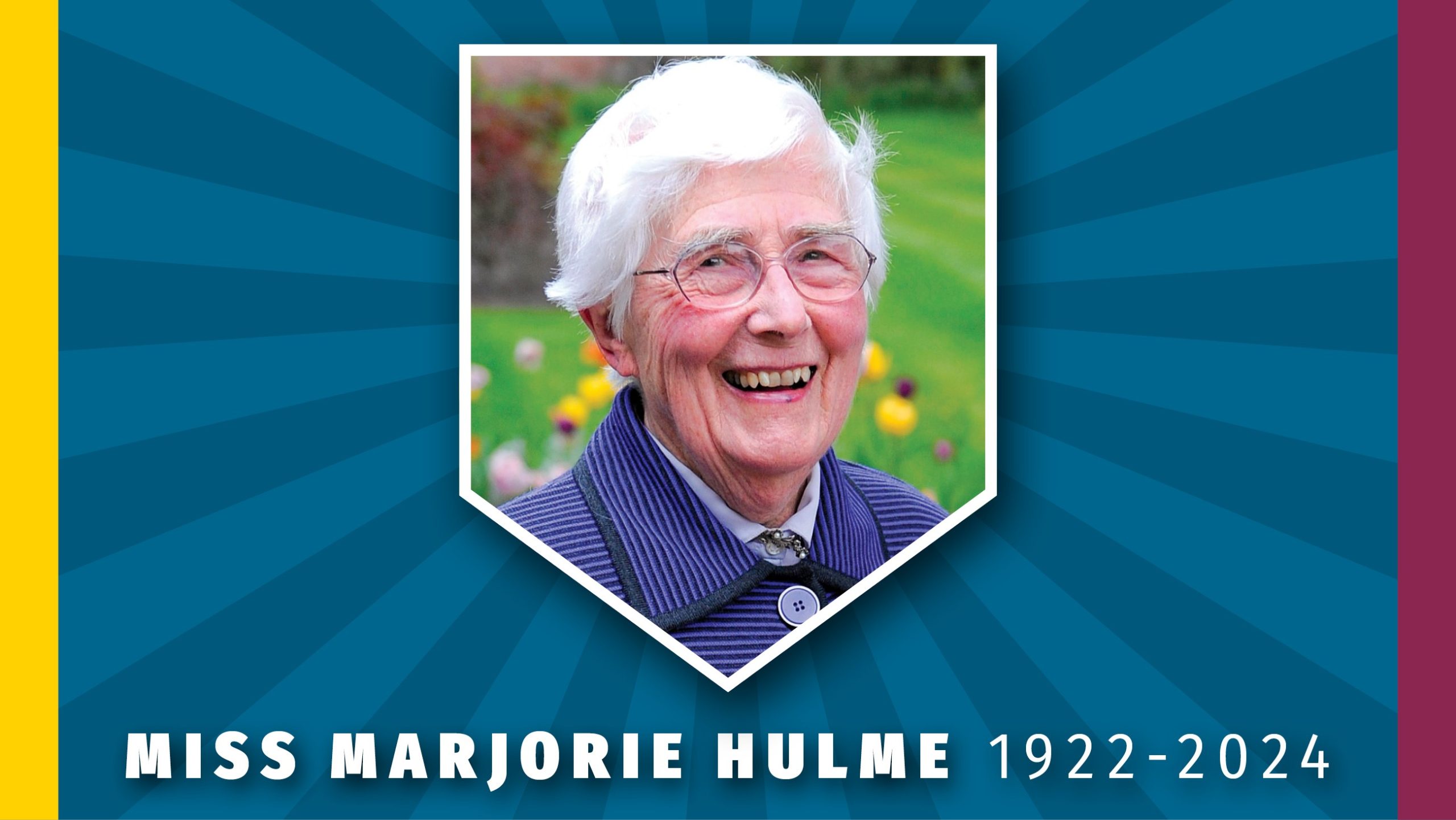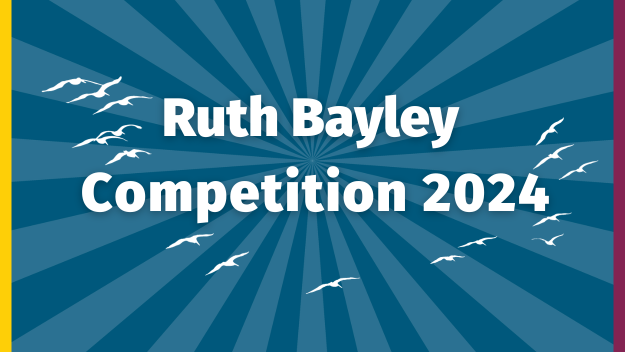2018
Here follows reports and impressions from Sixth Form pupils who visited The Gambia in 2018. They had and eye-opening and amazing time finding out more about the country and enjoyed meeting many smiling and friendly Gambian people, young and old!
About Withington in The Gambia
The WGS Sixth Formers who visited The Gambia recently were the 14th cohort to take the annual one-week trip, established in 2004. The group saw a newly-built multi-purpose hall at Mama Tamba Nursery and Infants School in the small village of Illiassa, for which they had fundraised and, while there, painted and added colourful designs to the walls.

The new multi-purpose hall at Mama Tamba Nursery and Infants School
The aim of Withington’s involvement in The Gambia is to advance educational opportunities. Pupils have raised at least £5000 each year and enabled the establishment of the school, enhancing buildings and associated facilities year-on-year. Mama Tamba School began with just a few pupils and now has more than 200.
The funds raised by the WGS 2017 Gambia team enabled the construction of a borehole and, aside from the obvious benefits of having a nearby unlimited supply of fresh water, the yields from the village women’s vegetable plots have much increased. The new borehole has also allowed for the development of a brand new enterprise. Tamba, the Head of the School has set up a youth enterprise project growing moringa and aloe vera from which soaps, lotions and powders are manufactured, enabling young adults to learn the processes and become self-sufficient in the future. The products have already become very popular for both hygiene and medicinal purposes and all sales income is ploughed back into the project and the community.
WGS project leader, Ms Kaeren Browning, said: “We are always thrilled to see the results of our ongoing involvement in Illiassa, but it is really the drive and ingenuity of our Gambian counterparts that make all these wonderful things come to fruition.”
More about The Gambia and the Trip
History and Politics
In the early 17th century, the English, Dutch and French were trading in The Gambia, which initially enabled them to economically move forwards as a country:
1807- the British abolished the slave trade in Gambia and began to take control of the country, where the settlers made their living by growing peanuts.
1821- the British initiated the process of colonisation in The Gambia.
1965- President Jawara was the first president after British colonialism ended in the same year. The country also joined the Commonwealth. However, the main export product, peanuts, dropped in price. Therefore, the economy fell which caused two attempted coups against the president in 1980 and 1981.
Relations between Britain and The Gambia
There were positive relations between the two countries due to the help from the Gambians during the two world wars:
WW1- 166 Gambians were awarded medals due to their efforts and bravery that aided the allied victory. 55,000 men served as soldiers and an estimated 10,000 perished during service when they tried to capture German controlled territories, such as Cameroon and Togo.
WW2- During the Second World War the four colonies in West Africa, including Gambia, became places for recruiting and training men to be a part of the armed forces. An example of one of these men is Kinte Kamara. Kamara fought the Japanese in the jungles of Burma and kept morale high; this won him accolades and medals for his bravery.
As a result of positive relations between the two countries, the Queen and Prince Phillip visited The Gambia in 1961 and were well received.
Politics of Gambia
The current president, Adama Barrow, has developed the economy of The Gambia, with a focus on infrastructure such as building new roads and bridges and developing transport. The Gambia left the Commonwealth in 2013; during the election campaign in 2016, Barrow pledged to rejoin the Commonwealth, which was enacted in February 2018.
(By Shamae and Bhavya)
Social Culture
Dancing is a main aspect across all communities. It brings everyone together and they use a repetitive beat so that everyone can join in. Whenever there is a musical gathering in The Gambia, drumming is a major component. The number of drums being played depends on the ethnic group; the Mandinka use three drums. They beat the drums with a lot of enthusiasm enhanced even more with clapping and singing. At Tendaba Camp we experienced just this. The women who organised the evening entertainment were very keen to get everyone involved and up and around the campfire dancing. The high temperatures in the day mean that the night is very lively and everyone from Binta, a 2 year old, and all the toddlers and adults get involved. As much as they tried to teach us their moves they were not as easy as they looked.
As well as having evening entertainment, Lamin’s cousin was very hospitable and cooked for us at our night in Illiasa. Home cooked meals of rice, chicken and noodles are all cooked over a fire. The food was delicious and we were very grateful as our hosts already had a large family to feed.
The culture is to have many children; life expectancy is low and there is no social security in old age such as pensions so children are expected look after and care for their parents when they are older.
(By Lara and Inaiah)
Lamin’s Compound
We went to Lamin’s compound where a local man, Hussain, demonstrated a local ‘cottage’ industry – how to tie-dye properly. The process can take over two hours and we all had a go at ‘stamping’ our own cloths, which is when we realised that it takes a lot of skill and accuracy to create the perfect pattern. Under the hot conditions we quickly came to understand how hard it must be to do this day in and day out. We appreciated the time they took to give us and an insight into their craft and showing the strong pride they feel towards their work.
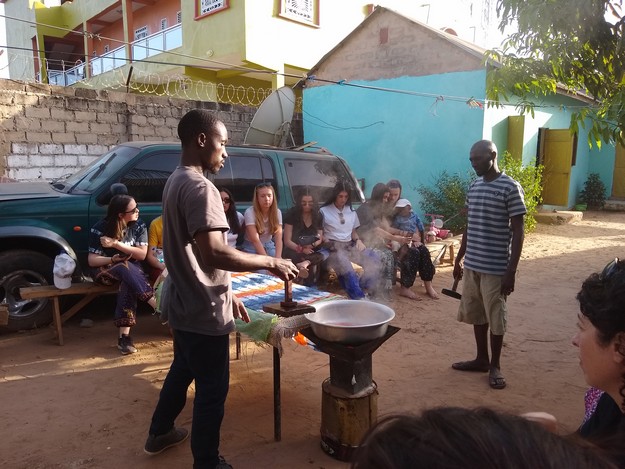
We were then invited to Lamin’s house where his wife had cooked us a large Gambian-style buffet in which we were strongly encouraged to get not only seconds but to have a whole 3 rounds. Hussain, who had taught us the tie-dye was invited to join us, as well as other family members. This highlighted to us the collectivism so prominently shown throughout our visit to The Gambia.
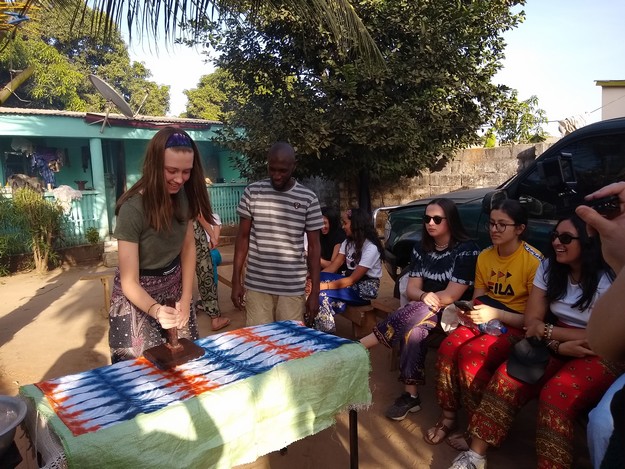
(By Lara and Inaiah)
Painting the Multi-Purpose Centre
For over a decade girls from Withington have come to Mama Tamba nursery in Illiasa, northern Gambia, to paint their nursery classrooms, among many other iniatives. From raising up to £7000, this year, we were able to use a part of the donations to fund the building of a multipurpose hall and we spent a day painting this room. The hall will not only be used for teaching the children but Tamba, the headmaster, teaches sustainable farming to the locals and opens the hall as a safe place for locals to stay at night. Tamba hopes to open the hall for future Withington girls to stay so they have more time in the community.

Each mural that covered the walls had a special significance to the ethos of Tamba’s nursery. First was the river with numbered fish, not only teaching the children to count but raising awareness of pollution. Then was the bee hive which was personal to Tamba as he hoped to start a beehive and produce local organic honey. There was then a mural of Gambian women carrying resources on their heads, significant to the children’s culture, highlighting the importance of women and the contribution they make to Gambian life. There was the field of wheat, showing sustainable agriculture and, finally, a snake measuring chart that could be used to show the children’s growth as well as measuring crop growth.
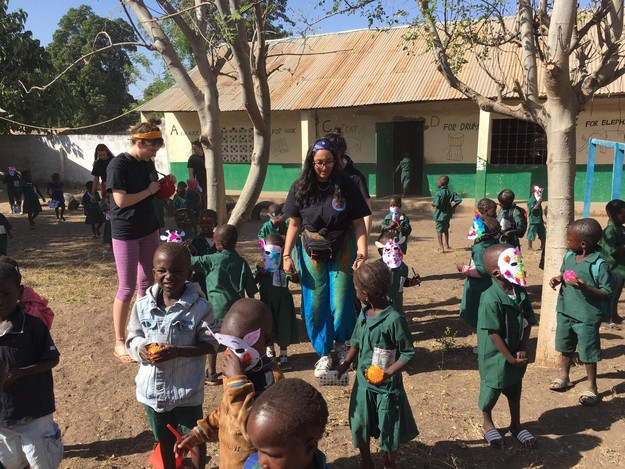
Knowing Tamba’s passion for an eco-friendly future and inspiring children at such a young age, as well as seeing his happiness when we contributed to his passion was an unforgettable feeling.
Knowing our hard work over the past year culminated in such happiness made the effort of fundraising and painting completely worth it.
(By Katie And Dalia)
Education
Over the 12 years that WGS has been funding Mama Tamba Nursery School, it has grown from a nursery with only a few students to over 200. We taught these children on Tuesday in three teaching groups.

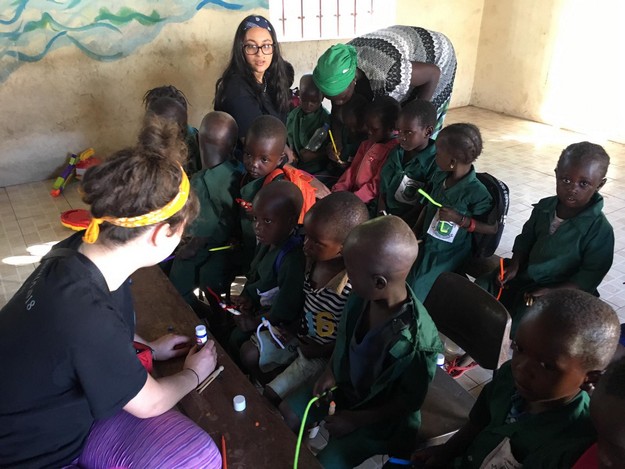
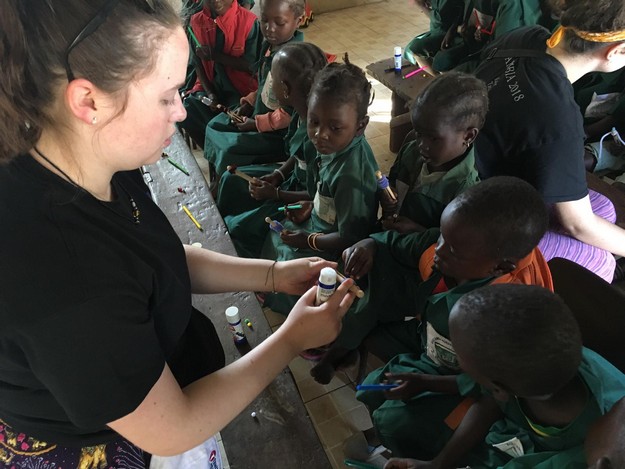
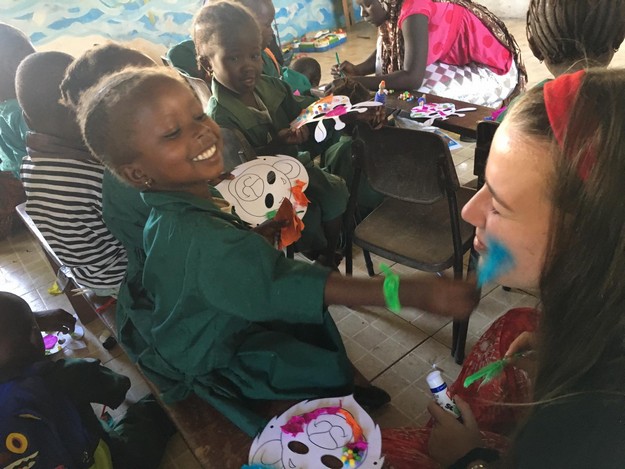

In the 3-4 year old class, the children were quite shy at first but after a tuneful rendition of ‘Baby Croc’ – not ‘Baby Shark’ – they soon warmed up. We first made peg people with them but the language barrier made it hard to explain to them what we wanted them to do. As they started to come out of their shells and become more talkative, we started making animal masks with them, which they all wore proudly. There was no end to the stream of children coming in the door and we soon ran out of masks – even though we printed 50! They did really enjoy tickling each other and us with the feathers!
The girls with the 4/5 year olds had great fun making snakes which they hung up in the classroom and paper birds which the children took home. The children and teachers sang us a song about a snake in Mandingo.
The oldest children – 5/6 year olds – made a boat each out of foam and lolly sticks, and foil fish which they took home. The girls taught them the actions to Row, row, row your boat before teaching them some English dance moves.
We finished the morning with a game of football that was expertly umpired by none other than Miss Cahill.
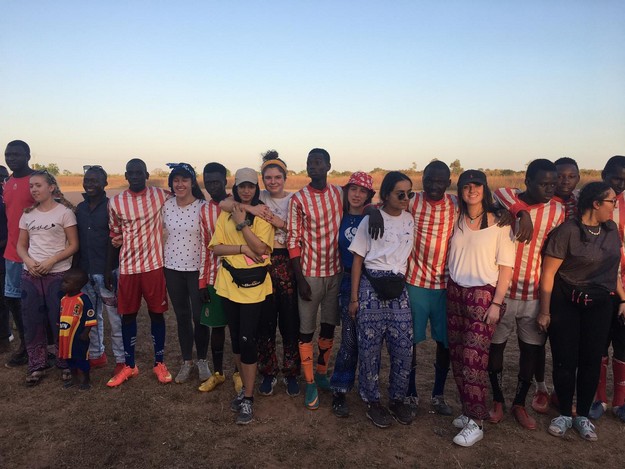
From the smiles on everyone’s faces it was clear to see that we all thoroughly enjoyed the morning. One of the hardest parts of the trip was saying goodbye to the children, who ran behind the jeep as we drove away.
(By Tara and Julie)
Eco
MyFarm is a charitable farm project run by Kelly and supported by a Norwegian charity.
The aim of MyFarm is to change the way people think, making a change at a young age. They do this by instilling confidence within the youth of Gambia in ways such as encouraging them to try small new skills, such as using scissors, that would not be a possibility in their home. This accumulation of skills prepares them for later life when they need to get a job to earn money, as confidence and skills are vital in development of the economy, both local and national.
Some skills taught to the children include creative skills, maths, English, environmental skills and computer skills. We were taken round these classrooms and, despite the intense heat, were all very impressed at how advanced the resources were. Our guide, Mohammed, explained each room in detail to us which gave us an insight into how this unique place gives so many opportunities to the children which would not otherwise be available to them.
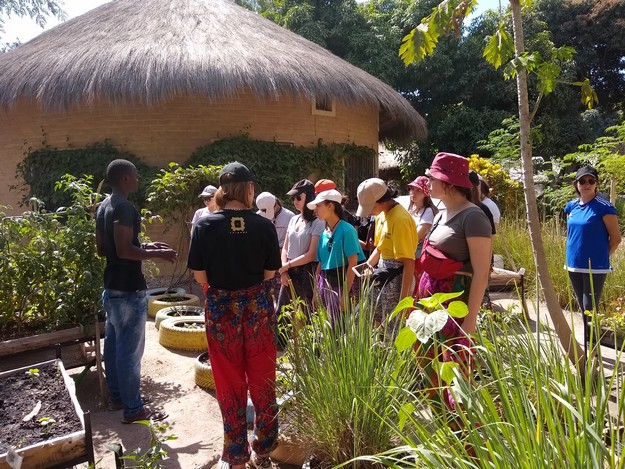
Kelly was passionate about climate-smart agriculture, growing crops such as mangoes and moringa to sell, eat and use in her soaps, jams and creams. This smart method of growing and using crops contributes to the maximisation of outcome. She also housed rabbits and quails, which surprisingly coexisted in one coop very peacefully. She was also passionate about the importance of sustainability, teaching the children to replant a tree when one is cut down. This sustainability was also reflected in her upkeep of the farm in ways such as covering the soil so that none is wasted, using solar cookers and ovens so that renewable energy is utilised.
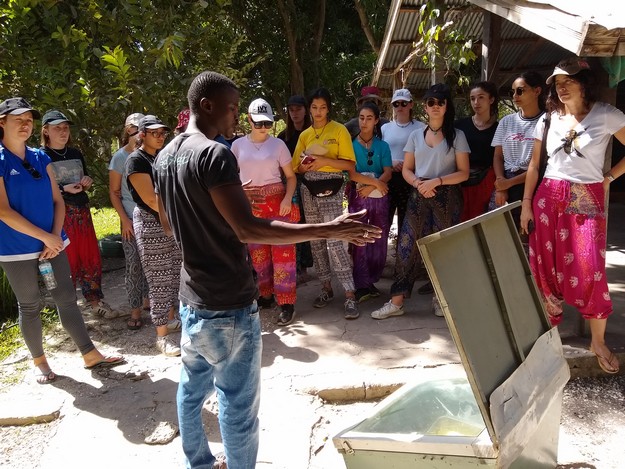
After our hard work at Mama Tamba nursery we were taken to see a project Tamba has been developing, at which he makes use of the warm climate to create a small-scale farming enterprise, bringing in an income.
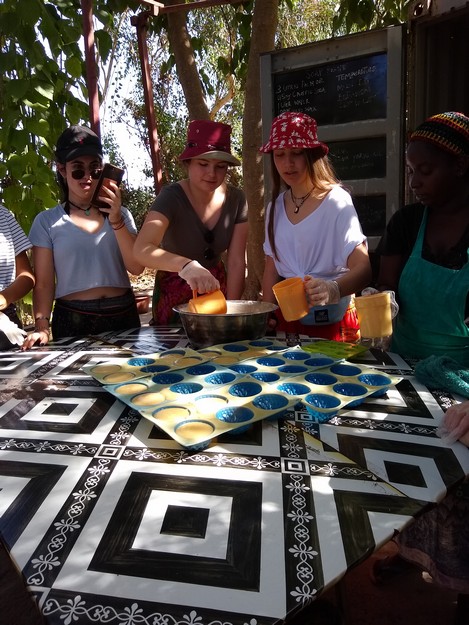
The products grown in The Gambia include moringa powder and aloe vera and the communities are fortunate to have them growing around them. Moringa has great healing properties and when used as a soap can help with skin conditions. Tamba created his own small oasis growing these crops and turned them in to useful to products including soap and washing powder. As well as improving the local economy, these are all grown sustainably and therefore work without jeopardising the environment.
The workers also gain vital skills when working and making these products helping them in their future life.
(By Ellie and Talia)
Reflections
The wonderful people of the smiling coast of Africa strive to make a change and drive forward the vision of you can do whatever you put your mind to. A diligent man at MyFarm, Mohammed, emphasised the idea that one does not need all the resources in the world to succeed, you succeed by doing the best with what you have. He and Kelly, the founder of MyFarm, believed that you must start with children at a young age as what they are taught and surrounded by then will remain with them for a life time, their childhood is the most influential time in their lives. This idea helped carve the farm and develop a small school where they taught the children maths, English, creativity and agriculture.
The idea that you must look after the environment you live in and respect the animals and the habitats as this collaboration is what will make a greater more beautiful Gambia was a main belief. And this belief was taught to the children so that they have a different childhood to older generations like Mohammed and respect the environment in which they live. Kelly has been living in Gambia for half her life and raised two sons with the special surroundings of the farm and her hard work has led to a beautiful eco-friendly area where she makes soaps, jams, dried fruits etc many with the use of solar machinery such as a solar oven which she used to bake us a cake. She has dedicated her life to her work and as well as reiterating that a lot stems from your childhood. Similarly, to Mohammed she also portrayed the view that we should not go home feeling melancholy or distressed but use this as a driving force to make a change and live life to the fullest.
(By Sara)
Conclusions
‘The smiling coast of Africa’ definitely lived up to its name. From the start everyone was very welcoming and friendly, especially the children who we loved spending time with. One of our favourite memories was when we were on a minibus and a large group of women and children needed a lift to the baby clinic so all hung on at the back. It was a very interesting journey to say the least with babies being passed from the back of the van to the front, where eager Withy girls waited to hold them.
A few times during the trip we were unlucky with transport as we missed the high tide for the canoe so we made to trek through the wetlands with our backpacks in the blazing heat. Usually, we would have been able to catch a ferry, but it had broken down and was in the process of getting repaired.
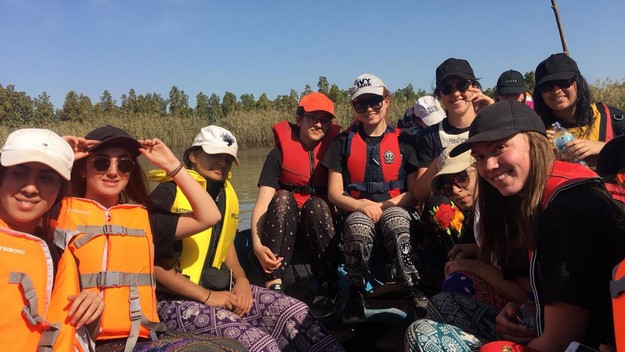
Another memory that stuck with us the most was the traditional African dancing that a group of local women and men put on for us and, of course, we couldn’t help but dance with all the children and girls. We danced around the campfire, but we were unfortunately outperformed by the dancing skills of the young African women, despite us trying our best. When we were driving around, we noticed that many of the children wanted plastic bottles to play with. As soon as we met them, they all instantly shook our hands and politely greeted us.
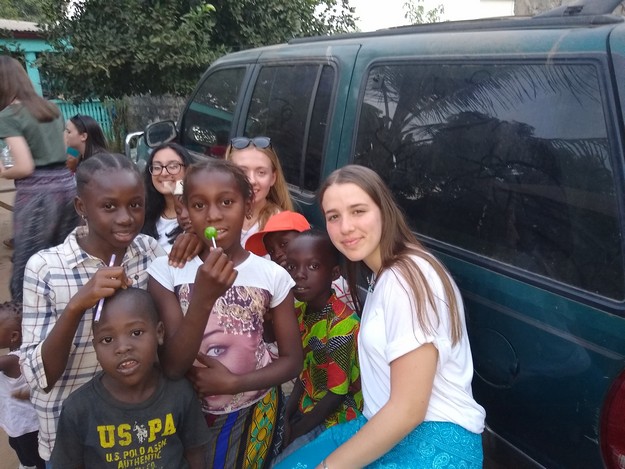
The children at Mama Tamba were very loving and affectionate which was unlike any other experience we’ve had before. A surprise that we found was that the majority of the children were walking around without any shoes and even running on the hot sand with bare feet. A new experience for many of us was when we went to the craft market to purchase Christmas presents and gifts for ourselves and found ourselves bartering. This involved plucking a price out of thin air and bargaining to get the best final price. For some, this was very challenging, but others enjoyed the experience.
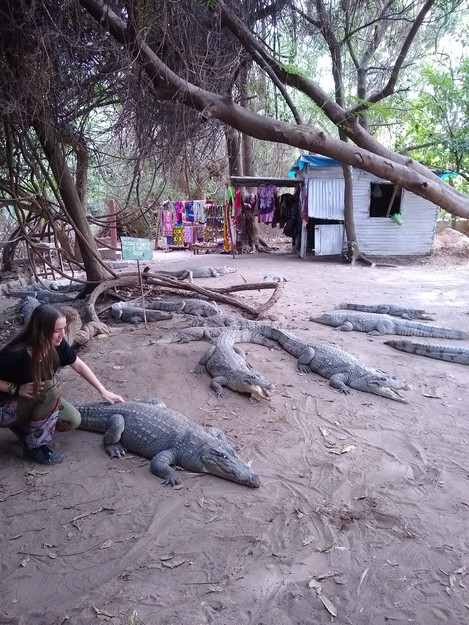
During the trip, we went to a crocodile park and a monkey park where we were able to stroke the crocodiles and feed the monkeys by hand. This was a scary – but invigorating – experience that we all loved. Overall, this has been an unforgettable journey and we have all had an amazing time whilst experiencing the Gambian lifestyle, making us appreciate the luxuries that we take for granted at home.
(By Isha and Maisie)
The passion of the Gambian people was clear straight from our arrival in the airport and we were all taken aback from the gratitude they had for the smallest things which we take for granted every day. Our trip was full of people who embrace their individual passions to make a positive difference to the community. Tamba, the Head of Mama Tamba Nursery School, has transformed a patch of land into his production line for his products, which people travel from all over The Gambia to buy.
We were fortunate enough to listen to Tamba’s inspirational words about his work and this made us realise not only how fortunate we are to have what we have, but how vital our money is to sustaining the life and work done at Mama Tamba. Tamba spoke of how he spends his time perfecting his products to make them as effective as possible. He has handed them to ill people, then watched for the benefits and side effects these have had and taken notes from this for his future work. Tamba’s soaps and powers, handmade from his aloe vera and moringa which he grows himself, alongside the students of Mama Tamba, have now been recognised as one of the best in The Gambia; people have travelled from all over the country to purchase his products and Tamba has now been recognised to be able to teach and train others to better their agricultural work.
Listening to Tamba speaking was inspiring to us all and his gratitude for the money we have raised was astounding. Despite the fact that the money we raise was key for Tamba to grow his business, in reality it is the passion and drive he has that has made him the success he is today.
(By Eleanor)
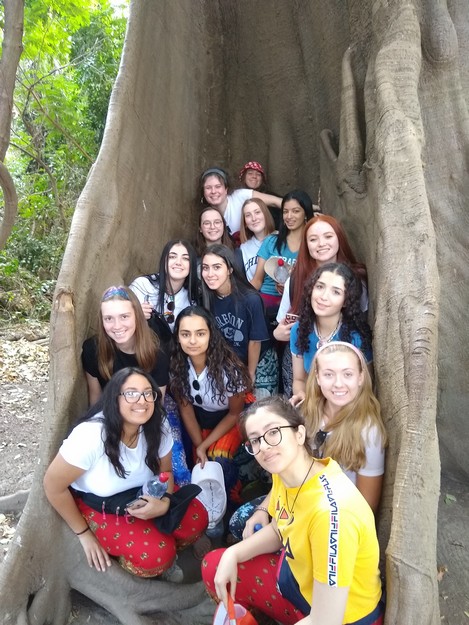
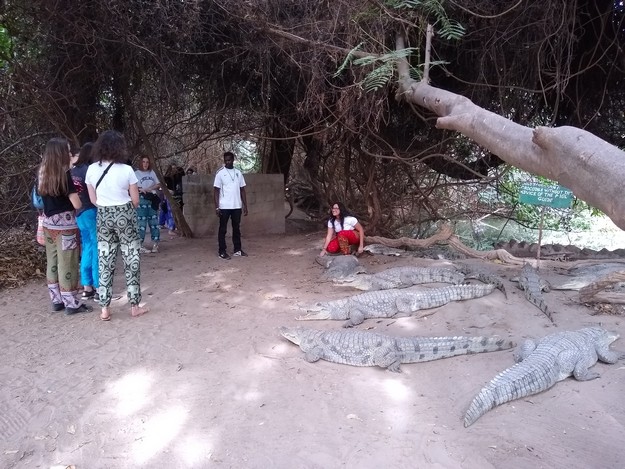

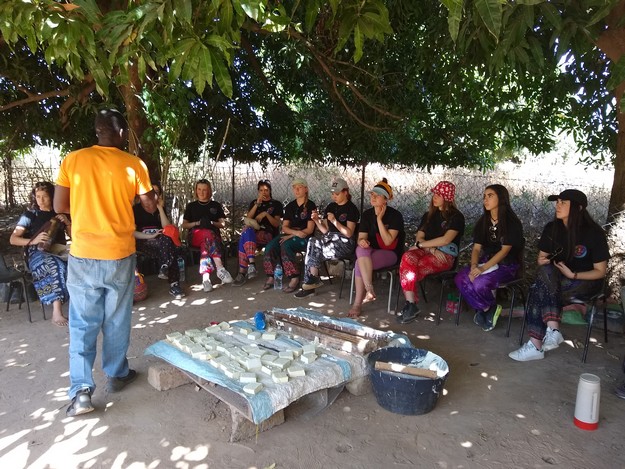
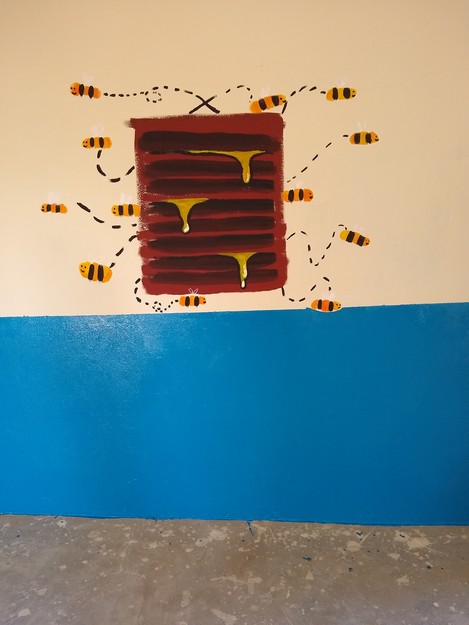
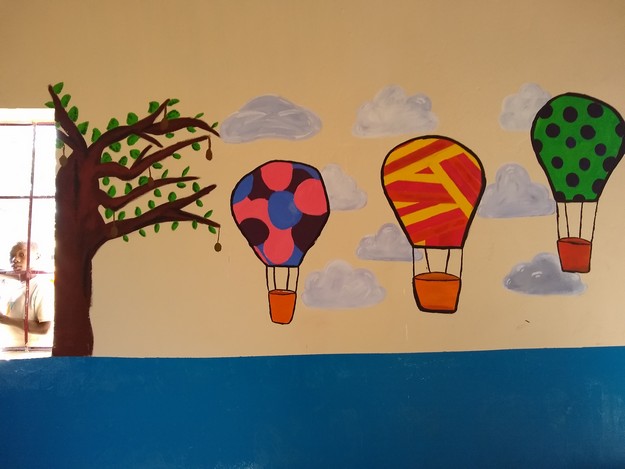
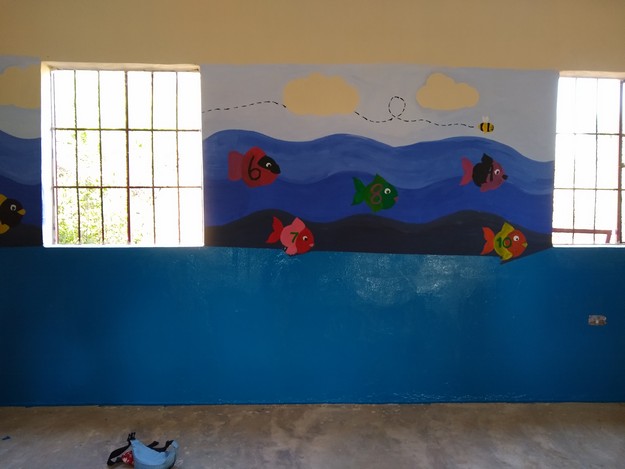
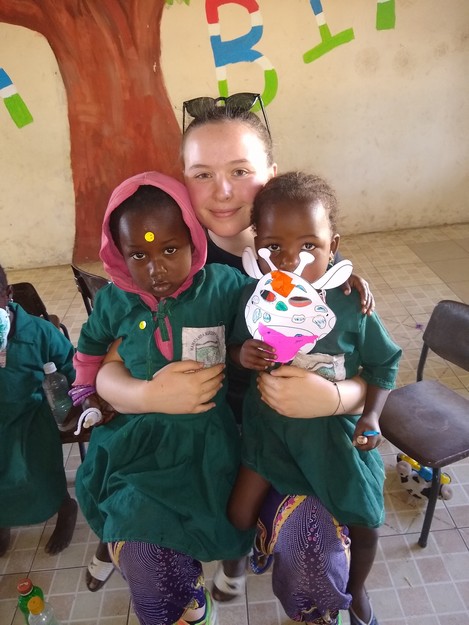
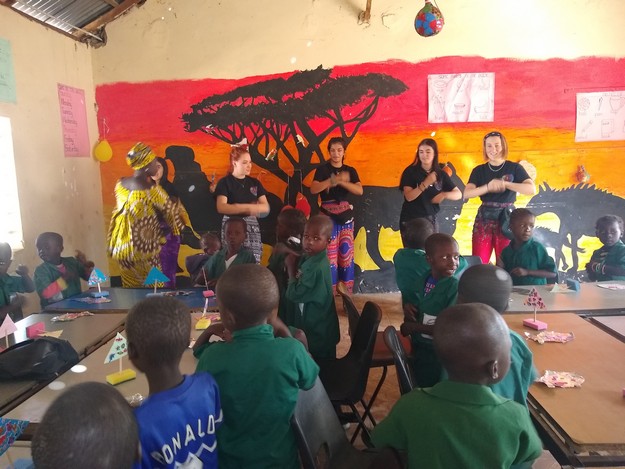
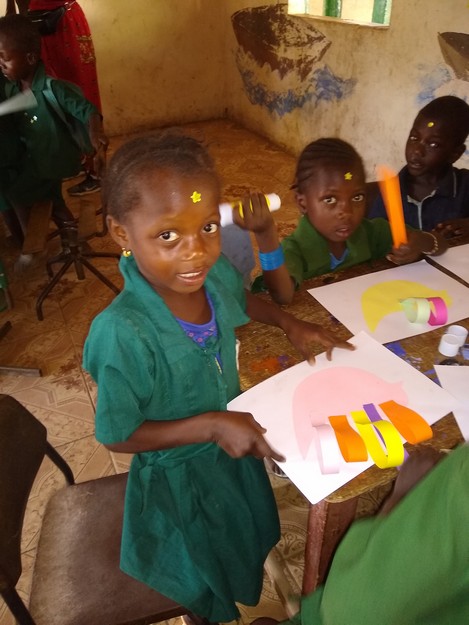
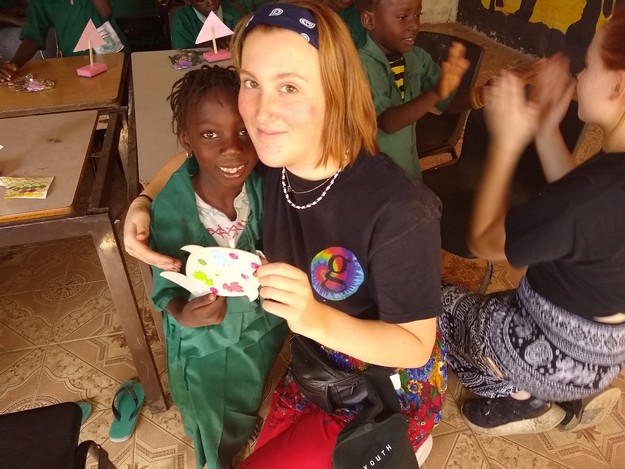
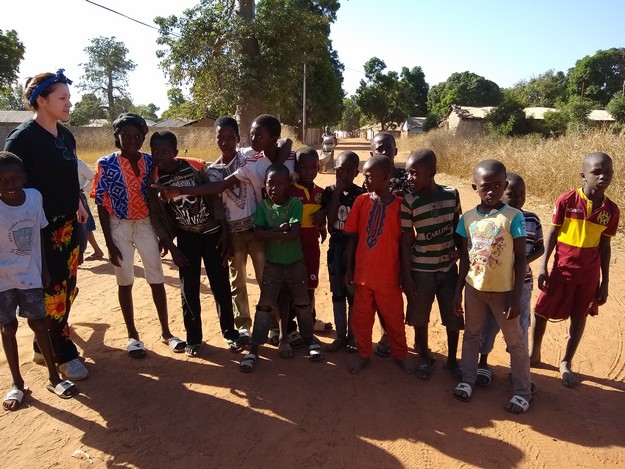
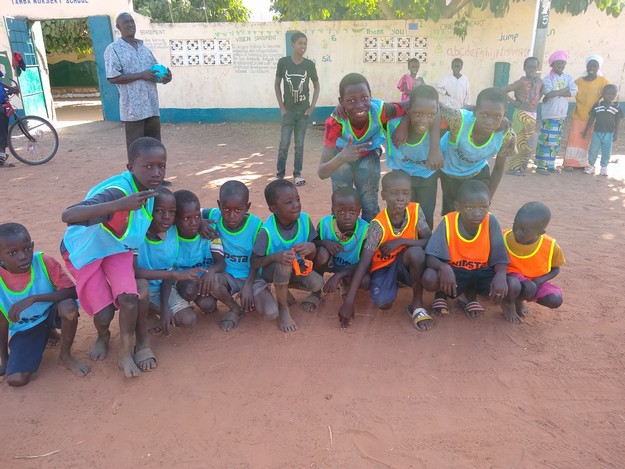
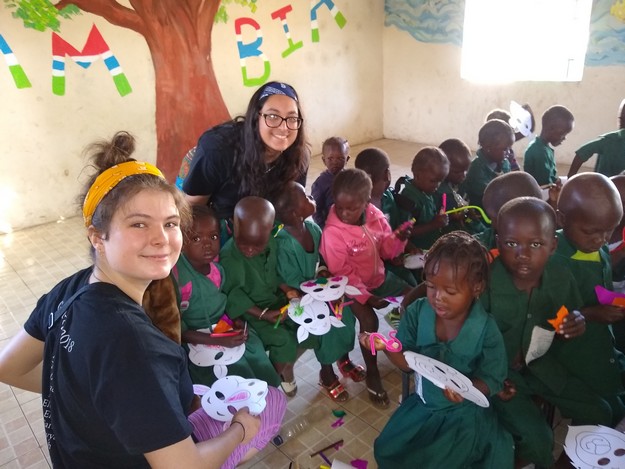
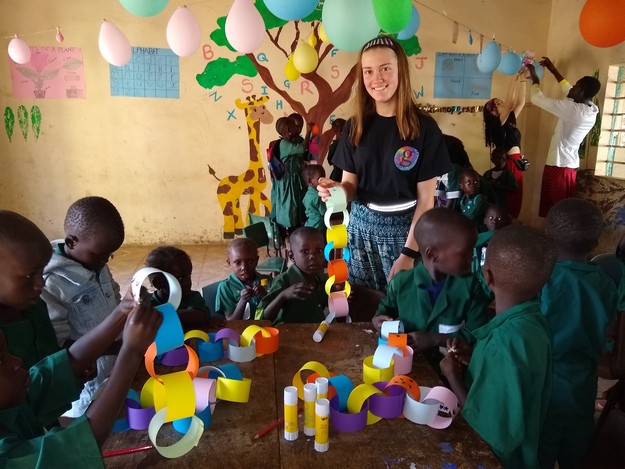
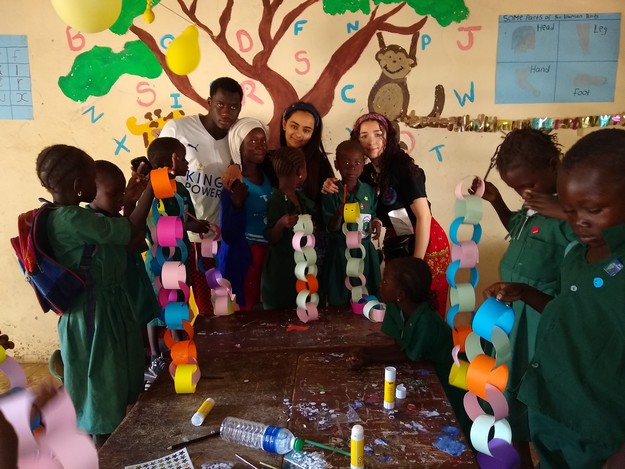
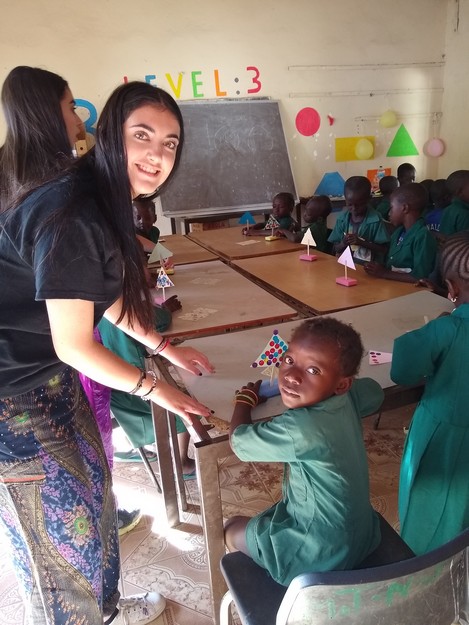
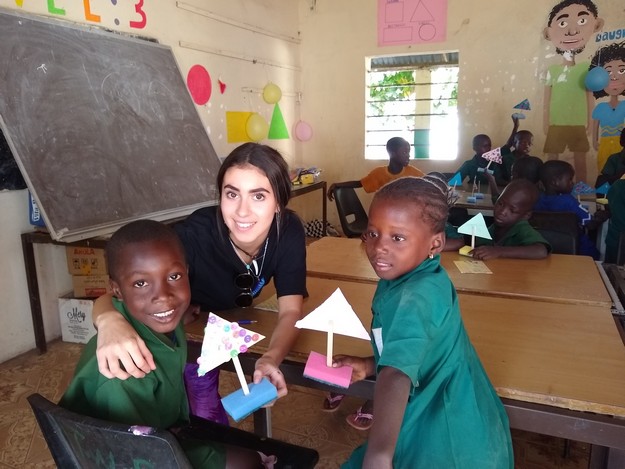
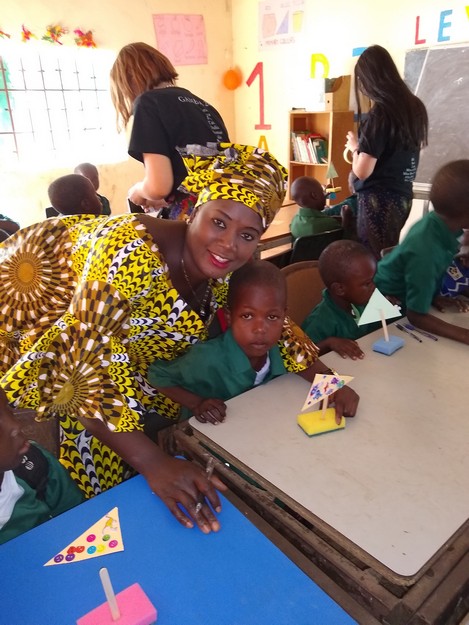
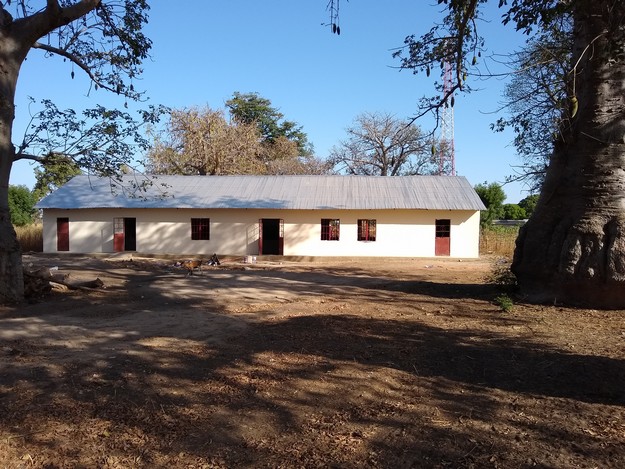
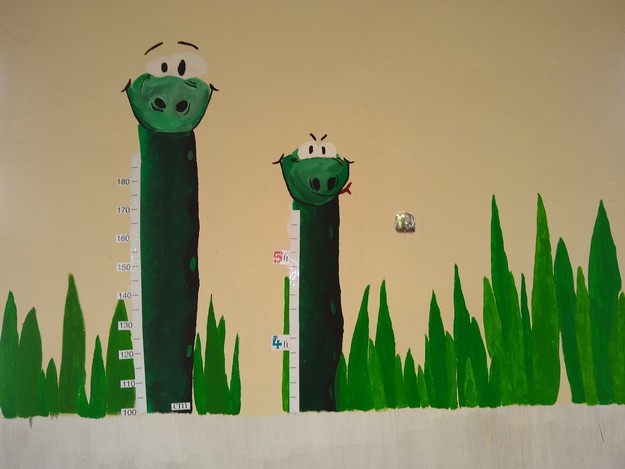
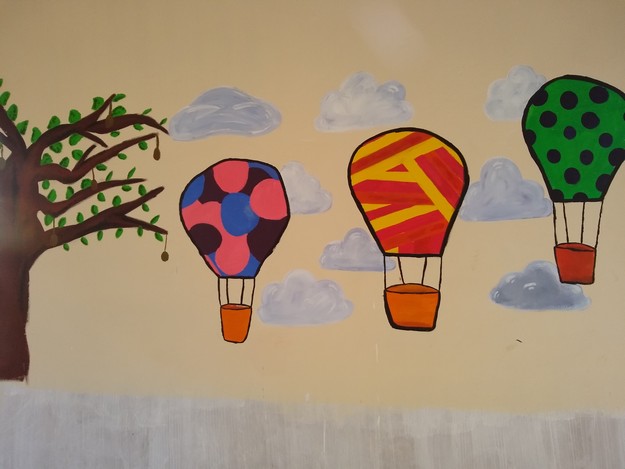
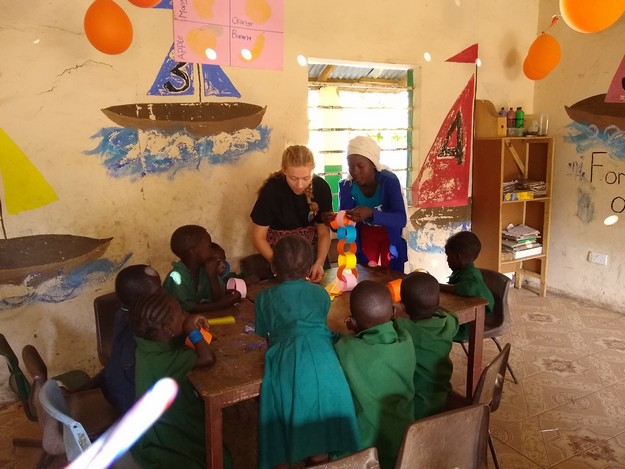
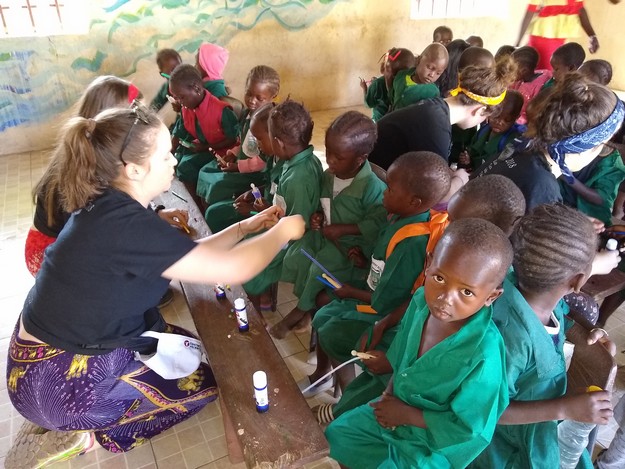
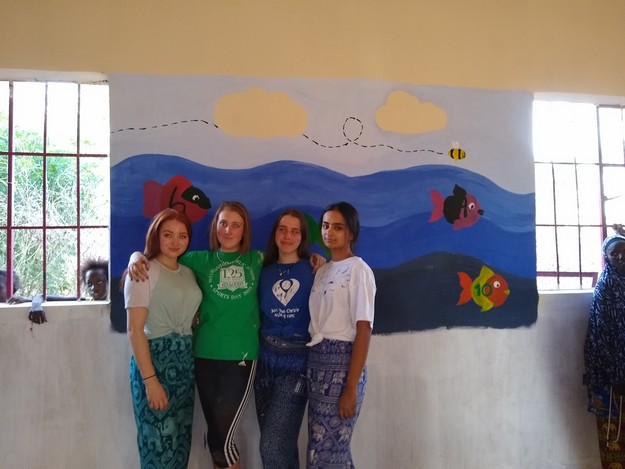
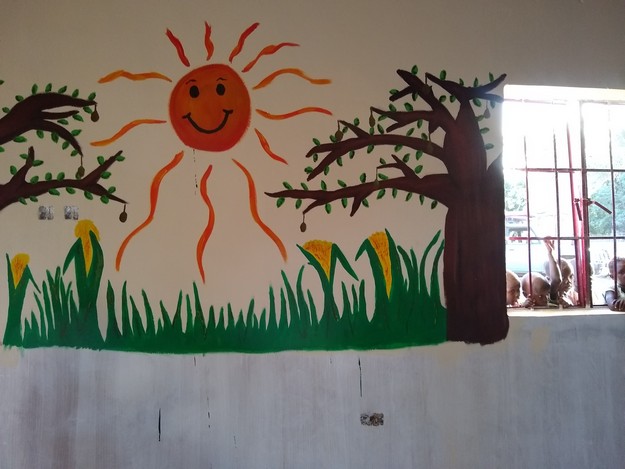
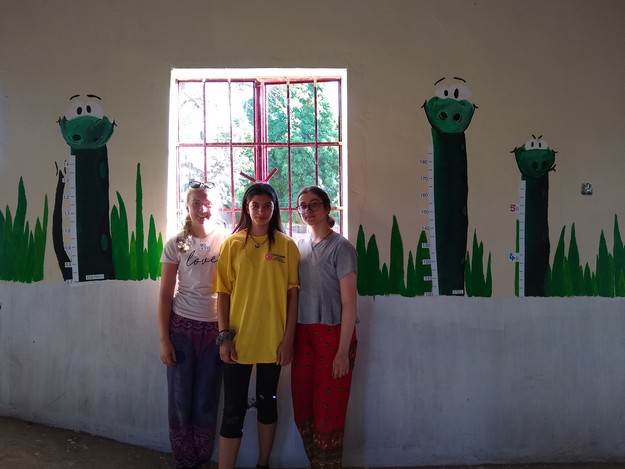
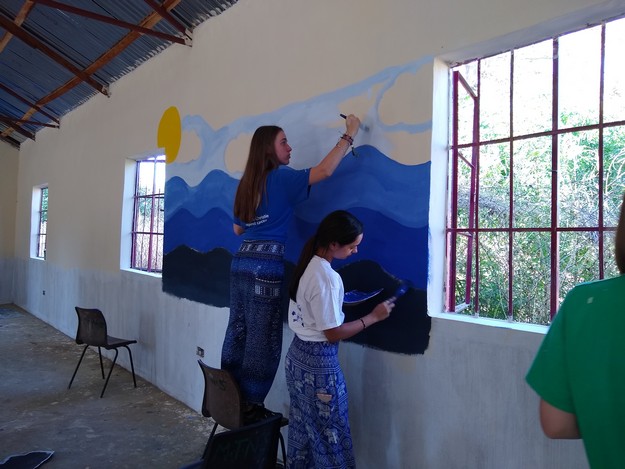
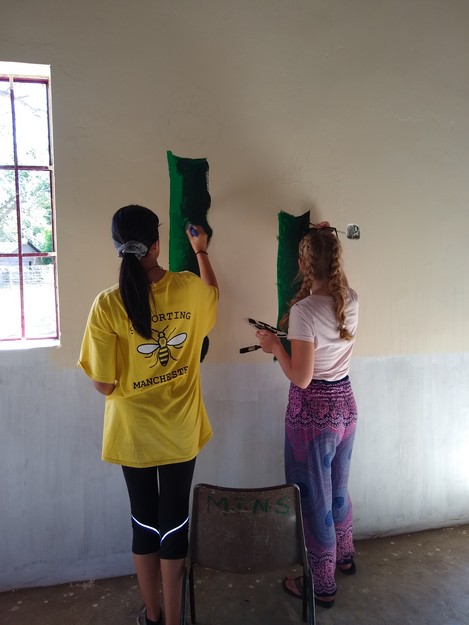
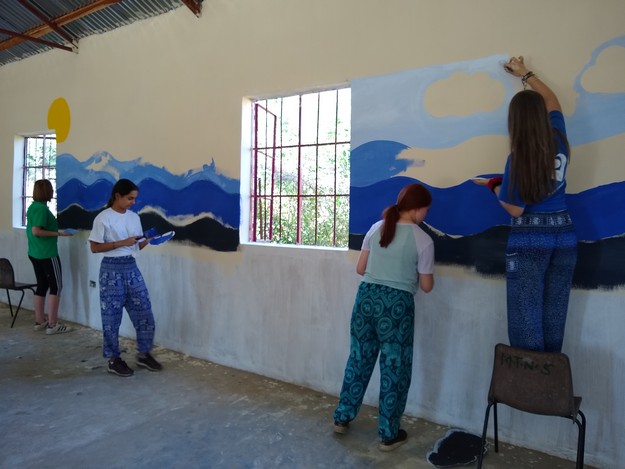
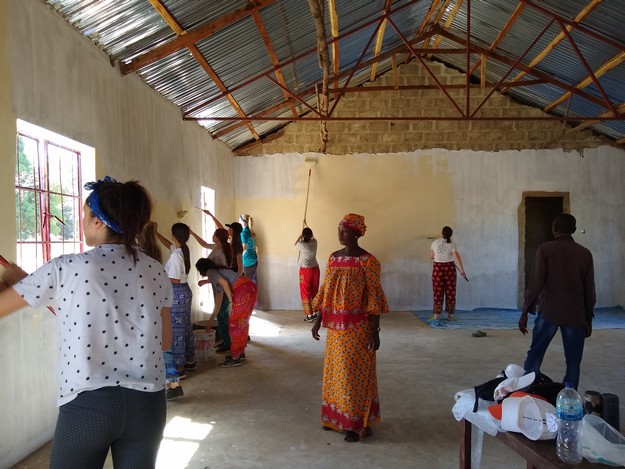
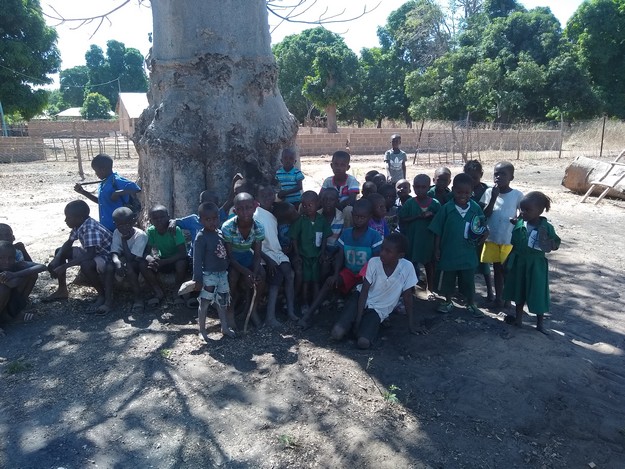
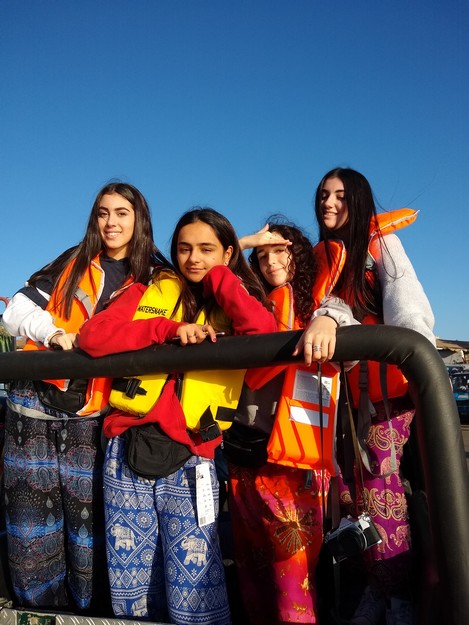
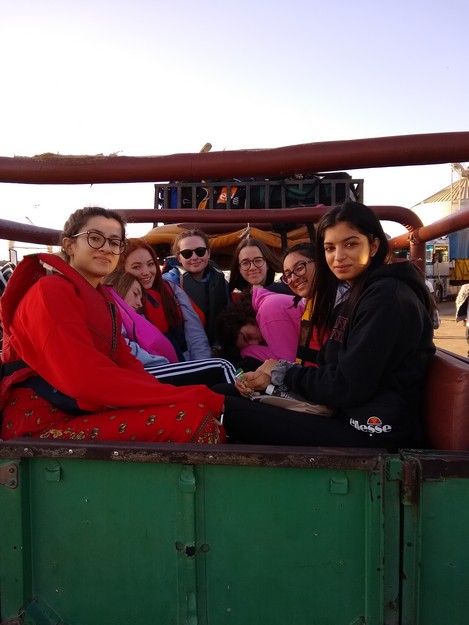
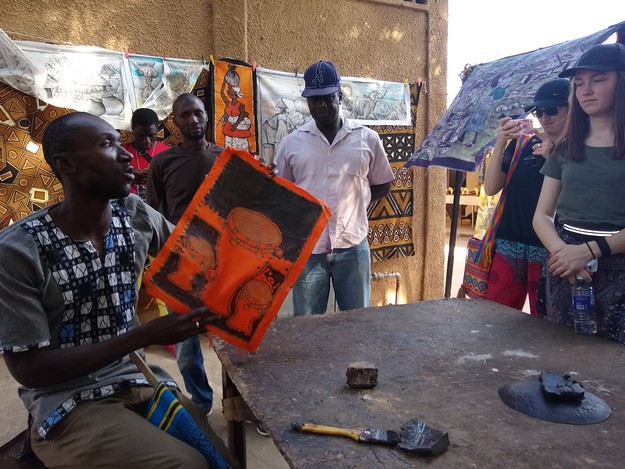
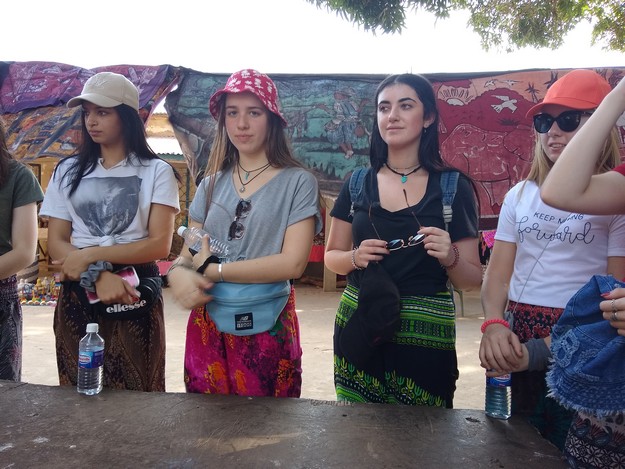
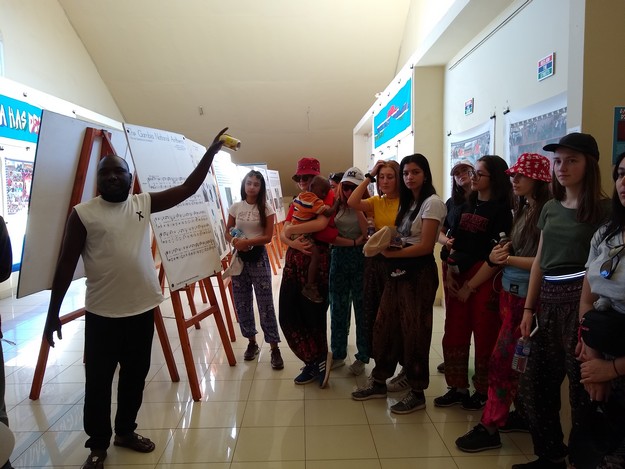
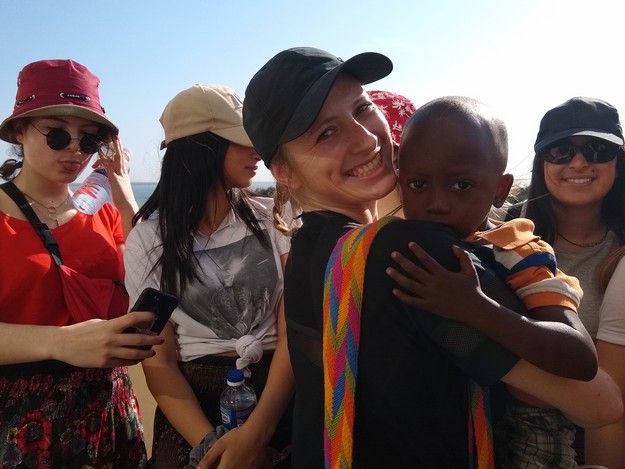
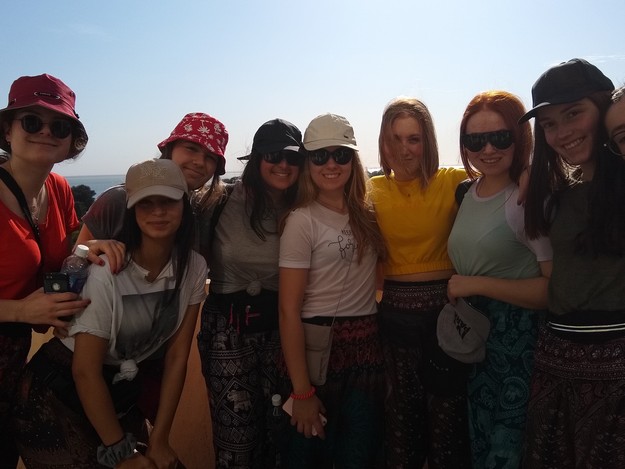
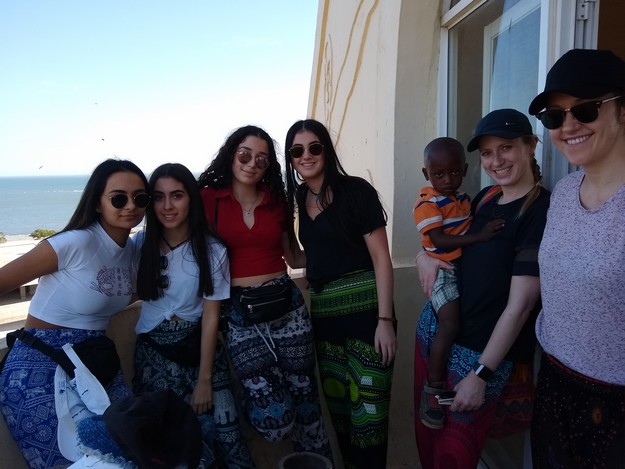

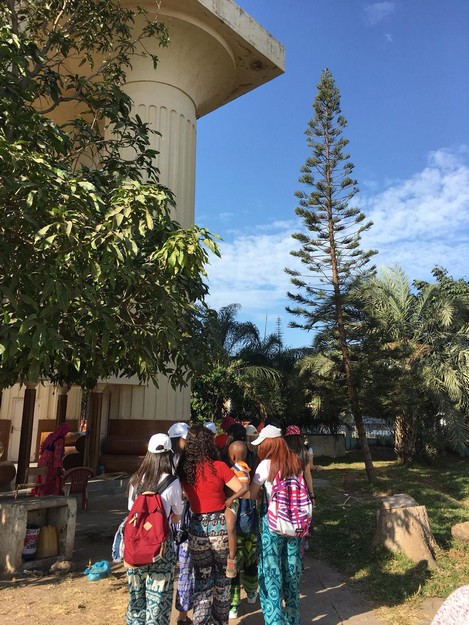
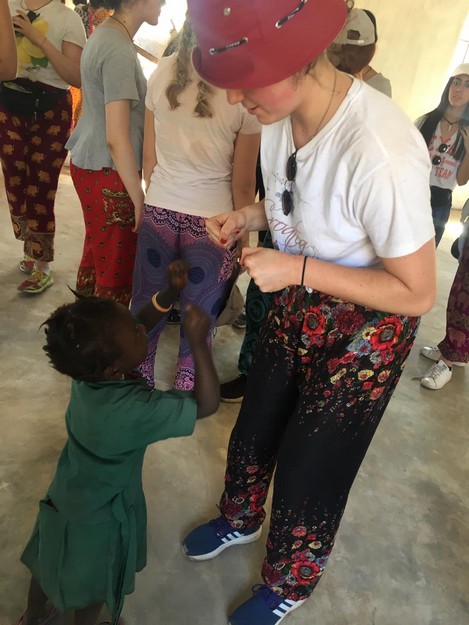



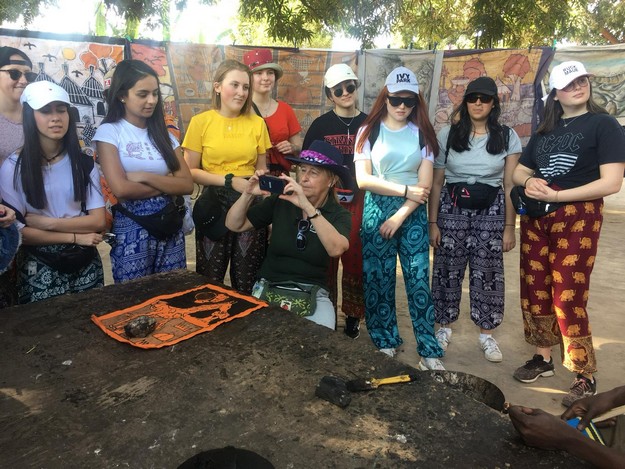
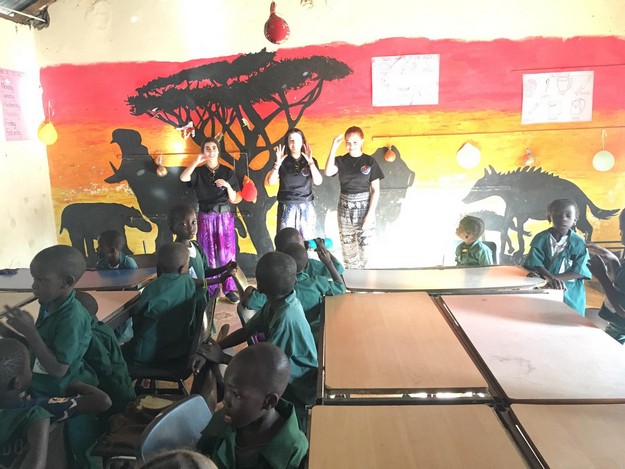
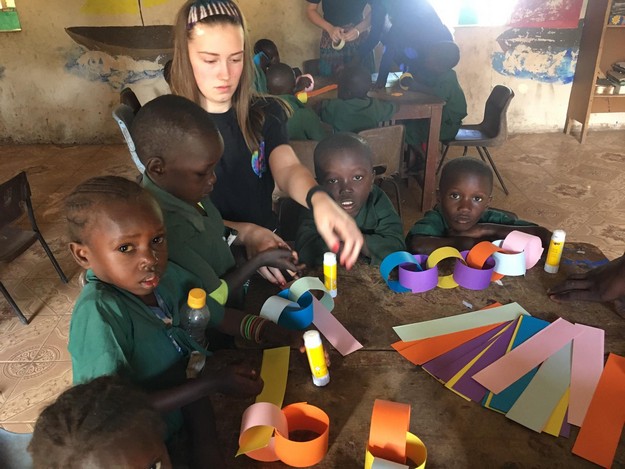


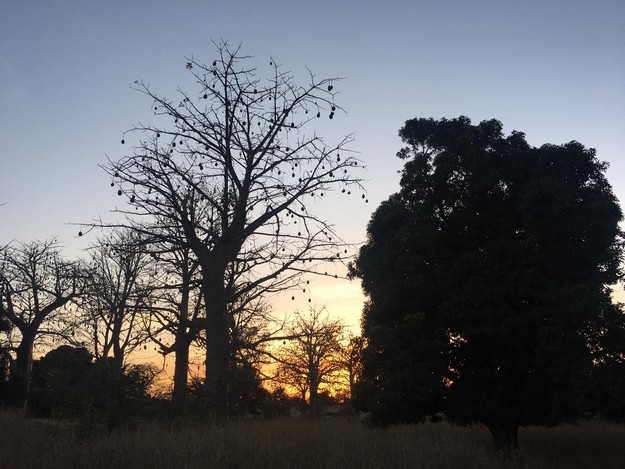
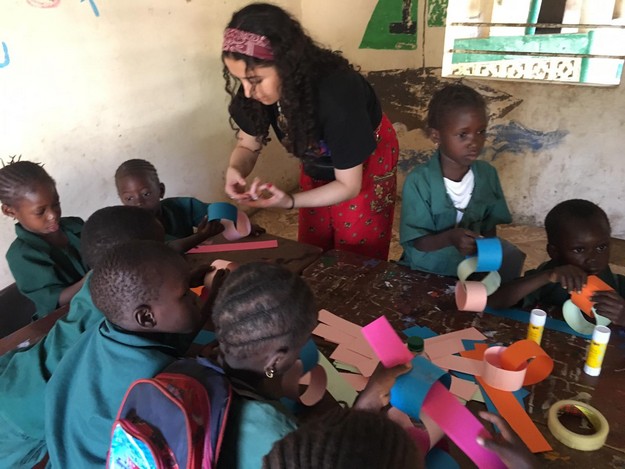
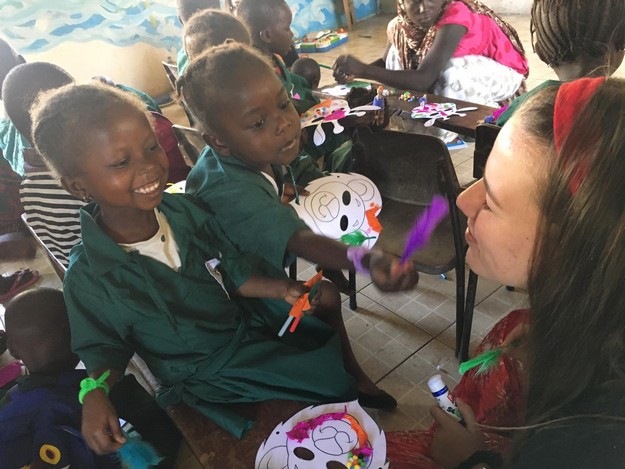
Latest News
Miss Marjorie Hulme
When we reflect on the history of our school and the people who have made it the place of outstandin…
Seven Students Celebrate Oxbridge Offers
Seven of Withington’s Year 13 cohort are celebrating offers to study at the Universities of Cambri…
Ruth Bayley Competition 2024
'Birds' is the theme of this year's Ruth Bayley Illustration Competition. Open to all pupils in the …

